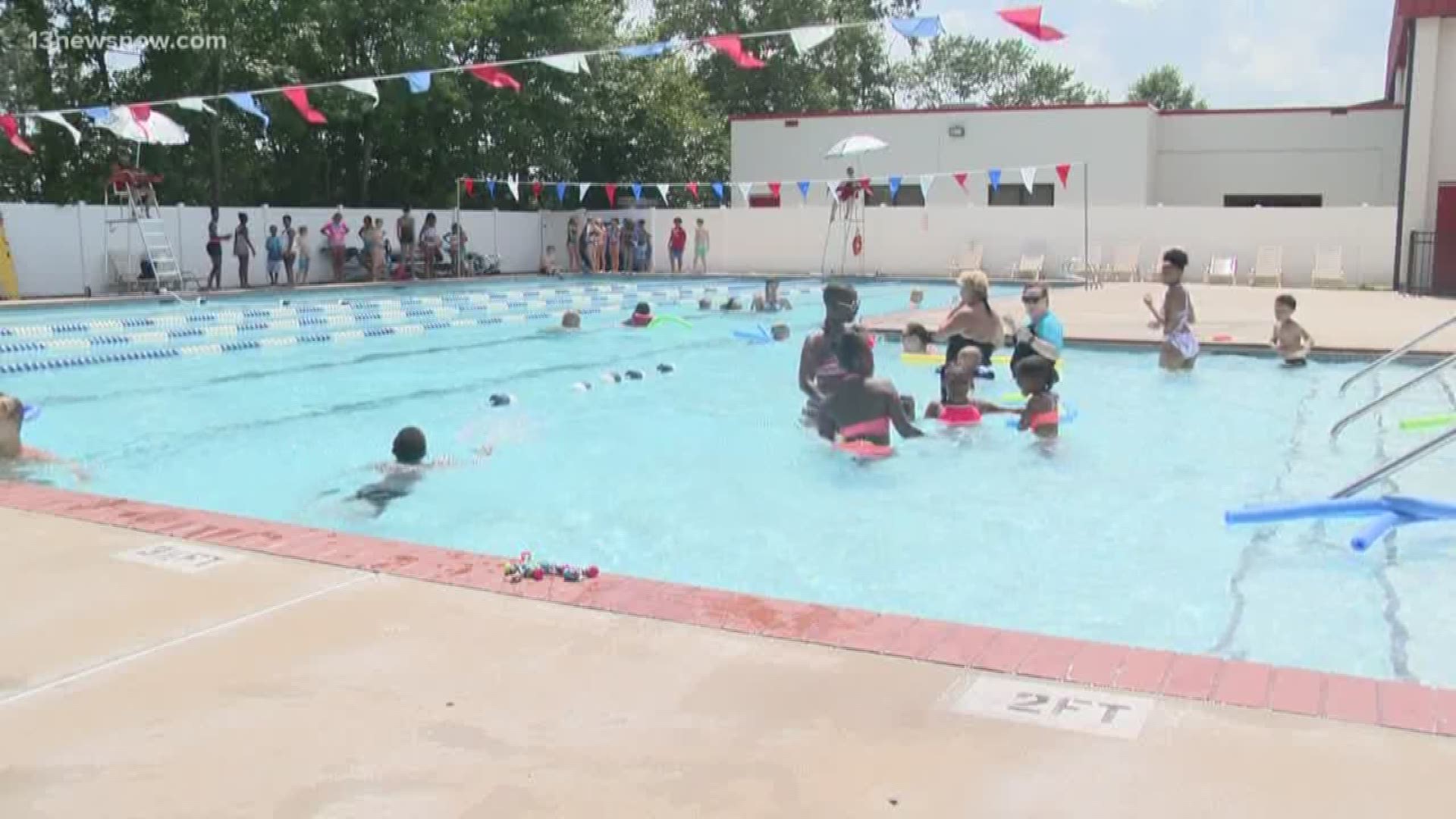CHESAPEAKE, Va. — When it's hot outside, you might think a dip in the pool will cool you off.
While it may feel that way, doctors say it can actually be dangerous.
Dr. John Snellings, an Assistant Professor for the Eastern Virginia Medical School said swimming puts you at a high risk of heat-related illness if you don’t stay hydrated.
“It [swimming] compromises your body’s ability to regulate its own temperature, and when your body temperature rises to a dangerous level, you’ll start having those symptoms. For example with heatstroke, you’ll lose the ability to regulate your temperature and it’s a life or death situation,” said Snellings.
The combination of humidity and long periods of physical exercise causes people to sweat and lose electrolytes at a faster pace.
“While going for a swim in a cool pool can be helpful, the mainstays of treatment for heat-related illness are still drinking plenty of fluids and staying hydrated and seeking out a cool air temperature location,” said Snellings.
That’s what Deb Peresich, a mom of two, was focused on Wednesday afternoon. Peresich took her children for an afternoon swim at the Greenbrier Family YMCA in Chesapeake.
“We each have our own water bottle that I try to keep full of ice water,” said Peresich. “Originally we were gonna go with a bunch of friends to a farm in Hampton, but when we saw the heat advisory, so many people were backing out.”
Dr. Snellings said he has seen a rise in the number of patients suffering from heat-related illness over the past couple of weeks.
“The main things you want to identify are heat exhaustion, which has some common symptoms with sweating, fatigue, nausea, vomiting, and something called heat stroke, which is actually a medical emergency,” said Snellings.
The symptoms of a heat stroke include high body temperatures above 103 degrees Fahrenheit, hot/dry skin, fast pulse, dizziness, confusion, and losing consciousness.

